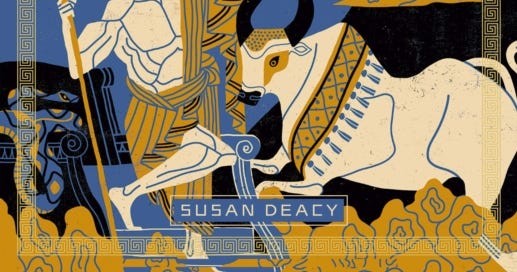Special Guest Post: The Mysterious Pull of Myth on Children, Young People and beyond
Prof. Susan Deacy on her Inspiring Work, Hercules and more
Today I am delighted to share the story of Susan Deacy, one of the most brilliant people working on and with ancient myth, as a special guest post. Susan is an extraordinary person and I know no one else whose work has made such an impact relating ancient wisdom to the modern world. For decades she has worked with children and young people (especially n…
Keep reading with a 7-day free trial
Subscribe to Myth and Mystery to keep reading this post and get 7 days of free access to the full post archives.



